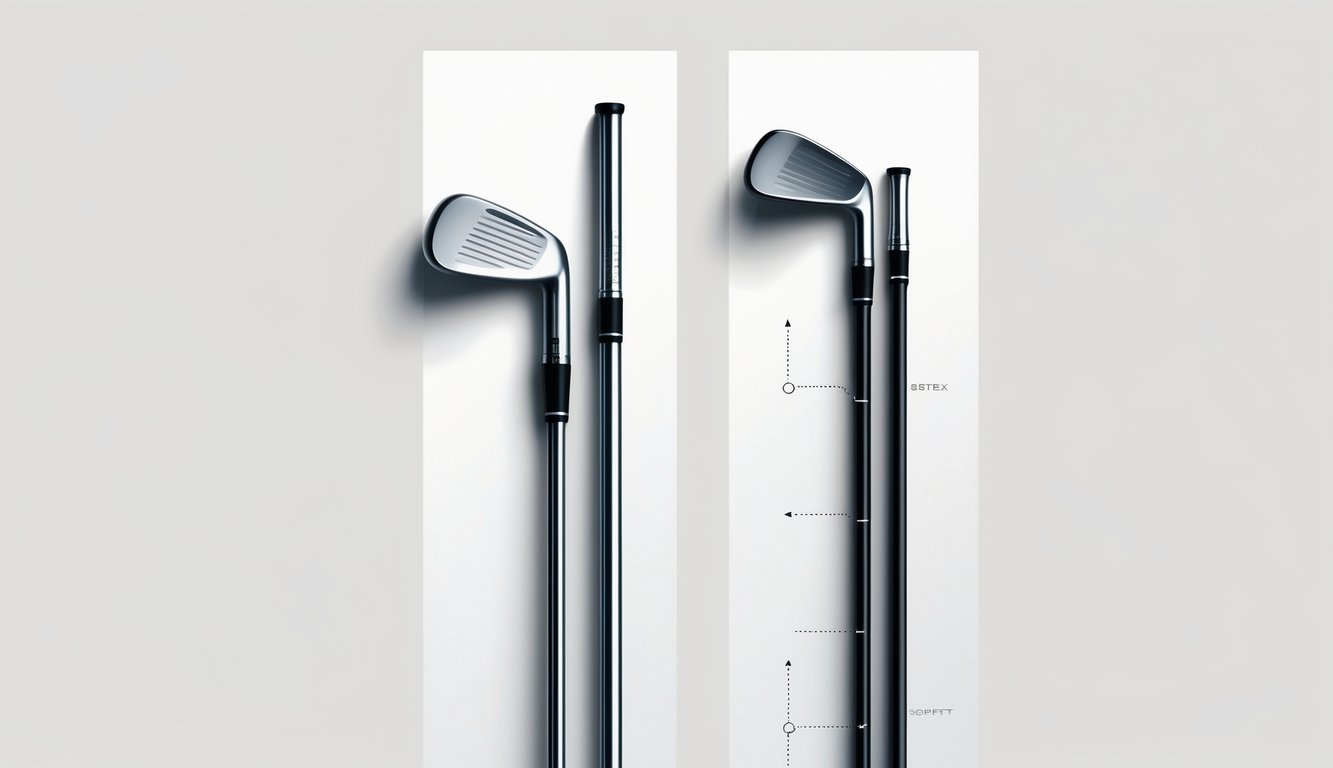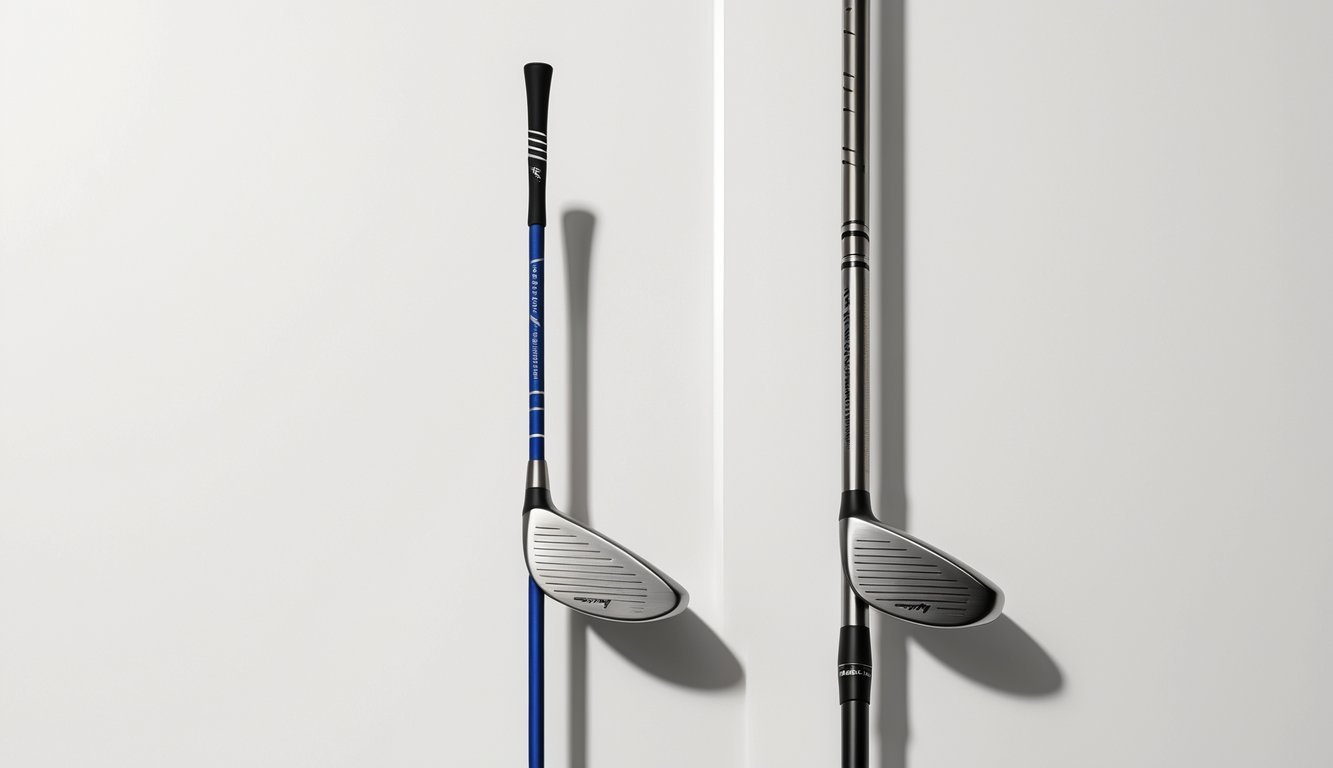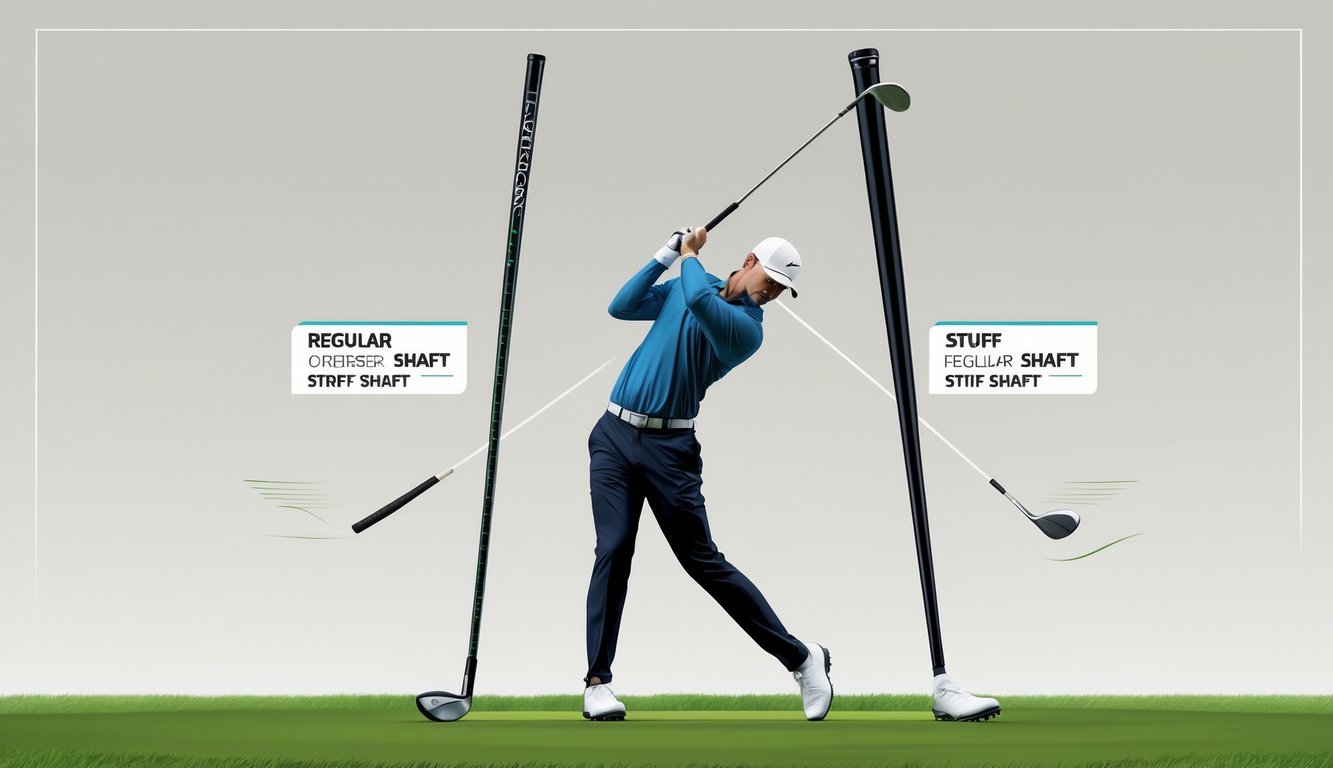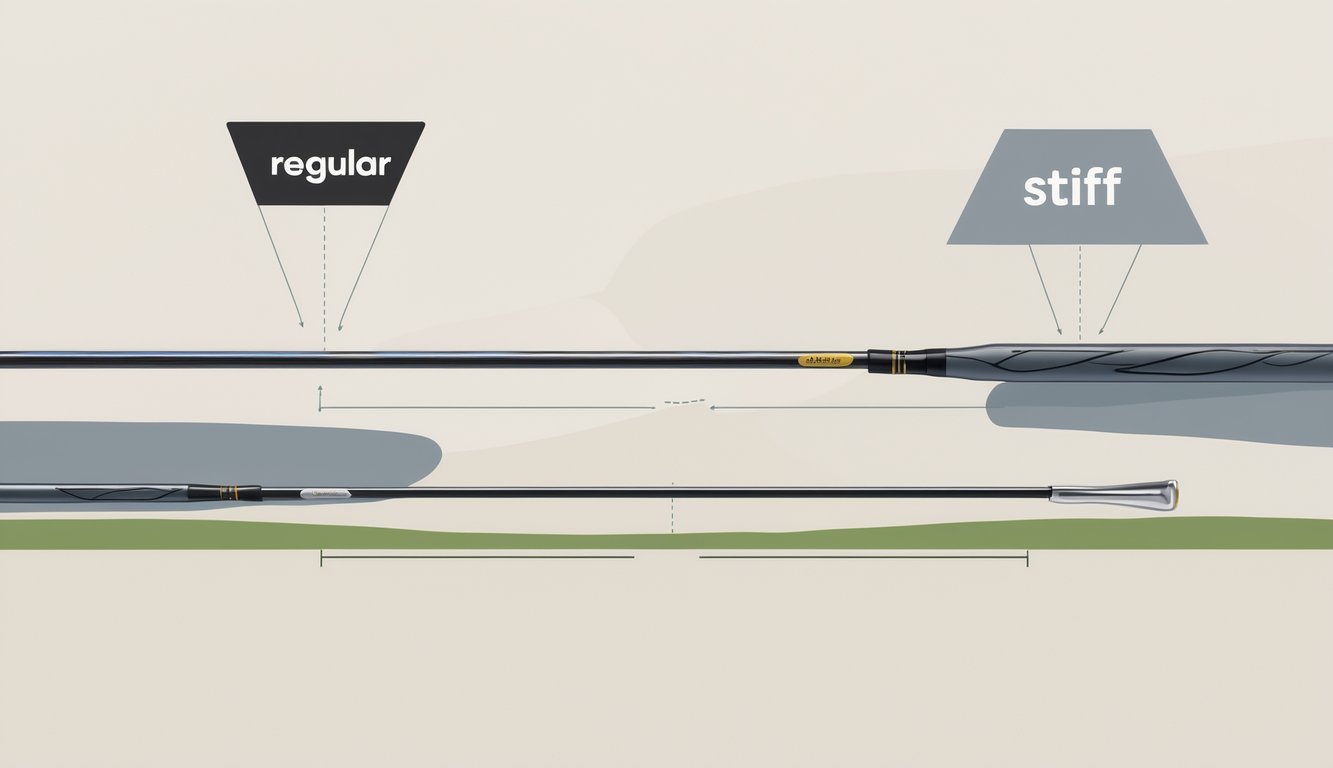PsychNewsDaily Publishers
100 Summit Drive
Burlington, MA, 01803
Telephone: (320) 349-2484
PsychNewsDaily Publishers
100 Summit Drive
Burlington, MA, 01803
Telephone: (320) 349-2484
Shaft flex significantly impacts golf performance; regular shafts suit slower swing speeds, while stiff shafts enhance control for faster swings, affecting distance and accuracy.

When you’re picking between a regular and stiff golf shaft, it really comes down to how fast and smooth your swing feels. A regular shaft flexes more and suits slower swing speeds. A stiff shaft feels firmer and works better if you swing faster or with more power. Figuring out which one matches your swing can seriously change how far and straight your golf ball travels.
Your shaft flex shapes how the club feels as you swing and how much control you have over your shots.
If you use the wrong flex, you’ll probably see more mishits and less consistency. Let’s break down the main differences so you can find the shaft that fits your game.

You should choose a regular or stiff shaft based on how you swing and what you want from your shots.
The flex changes how the shaft bends during your swing, which plays into your control, distance, and ball flight.
If you know these details, you can pick a shaft that fits your speed and style a lot better.
Shaft flex is basically how much the club’s shaft bends while you swing. A regular flex bends more, while a stiff flex resists bending.
The flex can shift the timing of the clubhead’s release.
Flexible shafts tend to “whip†through the swing and sometimes add distance. But if the shaft is too bendy, you might lose a bit of control.
You’ll notice that flex isn’t always the same between brands. One brand’s stiff might feel like another’s regular.
Trying out a few options is the only way to know what actually feels right for your swing.
Your swing speed usually decides if you need a regular or stiff shaft.
If you swing fast with a regular shaft, the extra bend might send your shots off target.
If you swing slow with a stiff shaft, you may lose distance since the shaft won’t load and release as much.
Shaft flex changes how your shots fly and how you perform overall.
A regular flex shaft usually sends the ball higher and adds more spin. That might mean more carry distance, but sometimes less accuracy if the shaft bends too much.
A stiff flex shaft lowers the ball flight and gives you more control. It helps reduce side spin, so your shots stay straighter.
You’ll probably feel more in control with a stiff shaft, but you need a faster swing to really make it work.
Finding the right flex is all about balancing distance, trajectory, and accuracy for your swing.

You’ll want to pick a shaft flex that matches how fast and smooth your swing feels. Your swing style, body type, and clubhead speed all play a part.
Shaft material and weight also change how your club feels and performs.
Clubhead speed matters most. If your driver speed falls between 97 and 104 mph, a stiff shaft usually fits.
Slower swings often call for regular, senior, or ladies flex shafts. These help you swing faster and get more distance.
Your tempo and swing force play a role too. If you have a smooth, slow tempo, you’ll probably like a more flexible shaft. It loads and releases energy better.
If your downswing is quick and aggressive, a firmer shaft gives you more control and keeps the clubface steadier.
Think about feel and control as well. Heavier, stiffer shafts can give you more consistency, but they might feel tough to swing.
Lighter, flexible shafts are easier to handle but sometimes give up a bit of control in wind or with fast swings.
Go see a club fitter if you want to find your ideal shaft. You’ll test different shafts by hitting balls at a driving range or an indoor spot.
Launch monitors track your ball speed, launch angle, and shot patterns. The data shows how each shaft affects your shot shape, distance, and accuracy.
Try shafts with different kick points (where the shaft bends) and weights. A fitter can recommend options that match your swing tempo and load.
Testing both woods and irons helps you cover all your bases.
Most shafts are either graphite or steel. Graphite shafts feel lighter and soak up more vibration.
They’re great for beginners, seniors, or anyone who wants to swing easier and reduce strain. You’ll find graphite shafts in regular, senior, ladies, or extra stiff flex.
Steel shafts weigh more and usually feel stiffer. They’re popular with stronger players and pros who want more control and consistency.
Steel is common in irons, while graphite usually shows up in woods. But some folks use graphite in irons for a lighter feel.
Don’t forget about shaft weight and torque. Lighter shafts help you swing faster, but heavier, firmer shafts can keep the clubface steady through impact.
Pick what feels right for your goals—power, feel, or consistency.

You’ll want to match your shaft flex to your swing speed and how much control you want. It’s all about getting your best shots with less effort and more accuracy.
Start by checking your swing speed. If you swing between 90 and 100 mph, a regular shaft usually works well.
Speeds over 100 mph? Go for a stiff shaft for more control.
Pay attention to how the shaft feels as you swing. If it feels too soft or bends too much, you probably need something stiffer.
If your swing speed drops below 90 mph or you start losing distance and accuracy, it might be time to try a regular shaft.
A ball flight that’s too low or shots that pull too much can also signal you need more flex.
A regular flex shaft lets you create more speed since it bends more during your swing.
It can give you extra distance and just feels easier to swing if you have a moderate swing speed.
Most beginners do better with regular flex shafts.
They’re more forgiving and help you get the ball airborne with less effort.
Starting with a stiff shaft can make it tougher to swing smoothly and control the club.
High handicappers usually find regular flex shafts easier.
They bend more and can help you get better distance and accuracy if your swing speed isn’t super fast.
If you swing fast, you’ll want a stiff shaft. It gives you more control and helps prevent the club from twisting too much.
For slower or more moderate swings, a regular shaft works better. It flexes more, making it easier to get a bit of extra distance.